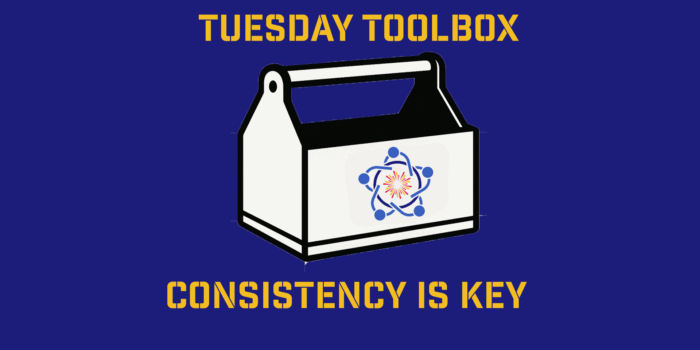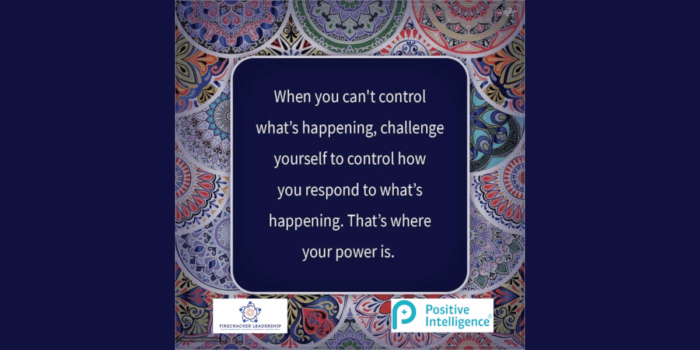My Wednesday Wish for You: Consistency A colleague of mine just won a boxing match. Another finished an Ironman. Neither…
This inc.com article shares 3 unicorn gifts to look for in employees. Do you possess them?
When looking to hire the best talent, how can you find people who can help you truly transform your business? Of course, you’ll be on the lookout for dedicated hard workers with proven track records, but who will take your team to the next level?
Mauro Porcini, chief design officer at PepsiCo, advocates looking for what he calls “unicorns” — people with the perfect mix of traits and skills that make them “ideal innovators.” Their attributes are a combination of natural talent and regular practice, and perhaps most importantly, they must be “people in love with people.”
Their guiding principle is to create things that are undeniably valuable to other humans. In other words, Porcini wants them to have a “human-centered” approach to innovation and business, which is the focus of his new book, The Human Side of Innovation: The Power of People in Love with People.
Unicorns can be found in any sector of business where people are trading, collaborating, and creating with and for other people. They’re not satisfied with just tweaking for minimum improvement — they’re looking to make big changes. And they know they often can’t do it alone, which makes them the ultimate team players.
Three Unicorn Traits to Look For
Porcini outlines unicorns’ traits in his book and organizes them into three different categories: entrepreneurial gifts, social gifts, and enabling gifts. You don’t have to look too far outside your own organization for unicorns — you can cultivate and develop these traits within your team.
1. The Entrepreneurial Gifts
Entrepreneurial gifts are the skills that directly relate to your ability to develop innovation strategies. This includes a willingness to experiment, develop new ideas, and follow through with them. Unicorns are proactive about looking for the root cause of a problem. This is often where the best inspiration for innovation comes from.
Unicorns are also willing to take risks. But they don’t take it to the extreme and deliberately seek out experiences that will help them develop a healthy sense of caution. They’re on top of trends in their industry and should even try to become trendsetters themselves since that can signify real innovation in the field.
Overall, their entrepreneurial spirit and drive should come from a place of “love for people,” as Porcini says. Unicorns aren’t satisfied by good profit margins alone; they want to create true value for the people they have in mind when working on their projects. This means they are holistically invested in their projects, looking at them from every possible angle.
2. The Social Gifts
The social gifts are what make unicorns the ideal team players. Porcini emphasizes the importance of kindness and respect in a group setting, arguing that this will motivate your team to work at its highest potential. A high level of emotional intelligence is vital for navigating group dynamics, especially since you’re relying on your team’s collective skills and expertise to complement one another, rather than butt heads. Unicorns recognize the value of diversity, in experiences, expertise, and communications styles.
Unicorns are also charismatic storytellers. Being able to convey a meaningful message about your team’s work can make or break your project. But don’t put too much pressure on your team to succeed at every turn. Porcini argues that there’s a lot of value in not taking yourself too seriously and having fun; it can make your team more productive and encourages everyone to become fully invested in the project.
3. The Enabling Gifts
The enabling gifts are the traits and soft skills that help unicorns use their skills to their highest potential. To be a visionary problem-solver, you must develop a deep sense of curiosity. A healthy sense of humility and an optimistic outlook can make you more resilient to failures in experimentation. Unicorns are comfortable with discomfort because they know it’s a part of the process of innovation.
Unicorns may be rare, but they’re not impossible to find. Emphasizing these traits within your own organization can also help you create the ideal environment to cultivate your own unicorns. These are people who aren’t satisfied with “good enough,” work best in collaborative, creative environments, and encourage everyone around them to step up to their highest potential.
BY MARCEL SCHWANTES, INC. CONTRIBUTING EDITOR AND FOUNDER, LEADERSHIP FROM THE CORE@MARCELSCHWANTES



